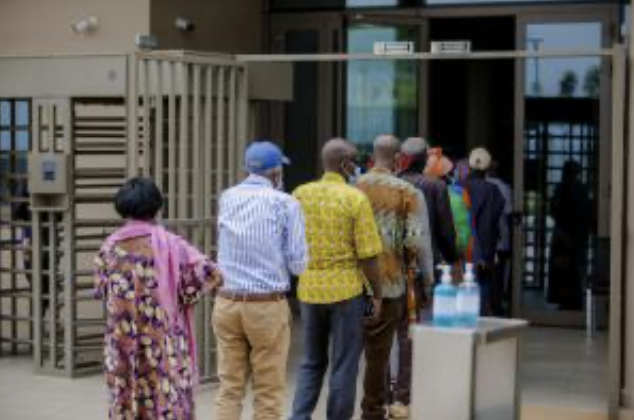
Africa needs to ramp up COVID-19 vaccination six-fold
Communicable Diseases
February 16, 2022
Although COVID-19 vaccine supplies to Africa have risen significantly, the continent is struggling to expand rollout, with only 11% of the population fully vaccinated. The vaccination rate needs to increase six times if the continent is to meet the 70% target set for the middle of this year. The World Health Organization (WHO), UNICEF, the International Federation of Red Cross and Red Crescent Societies (IFRC) and partners are launching a new initiative aimed at resolving bottlenecks.
To date, Africa has received more than 587 million vaccine doses, 58% through the COVAX Facility, 36 % from bilateral deals and 6% through Africa Vaccines Acquisition Trust (AVAT) of the African Union. In January 2022, 96 million doses were shipped to Africa, which is more than double that of six months ago. Increasing deliveries have eased shortages and turned the spotlight on the need for countries to rapidly ramp up vaccine rollout.
“The world has finally heard our calls. Africa is now accessing the vaccines it has demanded for far too long. This is a dose of hope for this year,” said Dr Matshidiso Moeti, WHO Regional Director for Africa. “However, a dependable pipeline must go hand in hand with operational funding to move doses out of depots and into people’s arms. WHO and partners are working with countries to urgently fix operational challenges including supporting health workers to speed up vaccine delivery, save lives and beat back this pandemic.”
Currently 6 million people are vaccinated on average every week in Africa, and this number needs to increase to 36 million to reach the 70% target agreed globally. Although Mauritius and Seychelles have already met the 70% target and seven African countries have vaccinated 40% of their population, vaccination rates on the continent remain low. Twenty-one countries have fully vaccinated less than 10% of their populations, while 16 have vaccinated less than 5% and three have fully vaccinated less than 2%.
The slow uptake in COVID-19 vaccines in Africa requires global partners and countries to reset their programmes. WHO, UNICEF, IFRC and other partners are scaling up efforts to overcome hurdles, improve coordination and speed up vaccination drives. They have called for support to ensure vaccines are administered as quickly as possible upon arrival to avoid expired vaccines.
“UNICEF is at the forefront of the largest, most sophisticated ground operation in the history of immunization – and it will take a response of the same magnitude to turn vaccines into vaccinations,” said Mr Mohamed M. Malick Fall, UNICEF Regional Director for Eastern & Southern Africa. “Richer countries must not only ensure they are donating vaccine doses that have adequate shelf lives but also contribute funding for in-country operational costs.”
Data reported to WHO from 40 countries finds that there is a US$ 1.29 billion gap in funding for operational costs.
Late last year, WHO, in partnership with UNICEF, international and national partners, including ministries of health conducted surge missions to countries in Africa with the aim of understanding challenges and unlocking bottlenecks. Based on the mission findings, the partners have launched an initiative to support countries to reach the 70% global target.